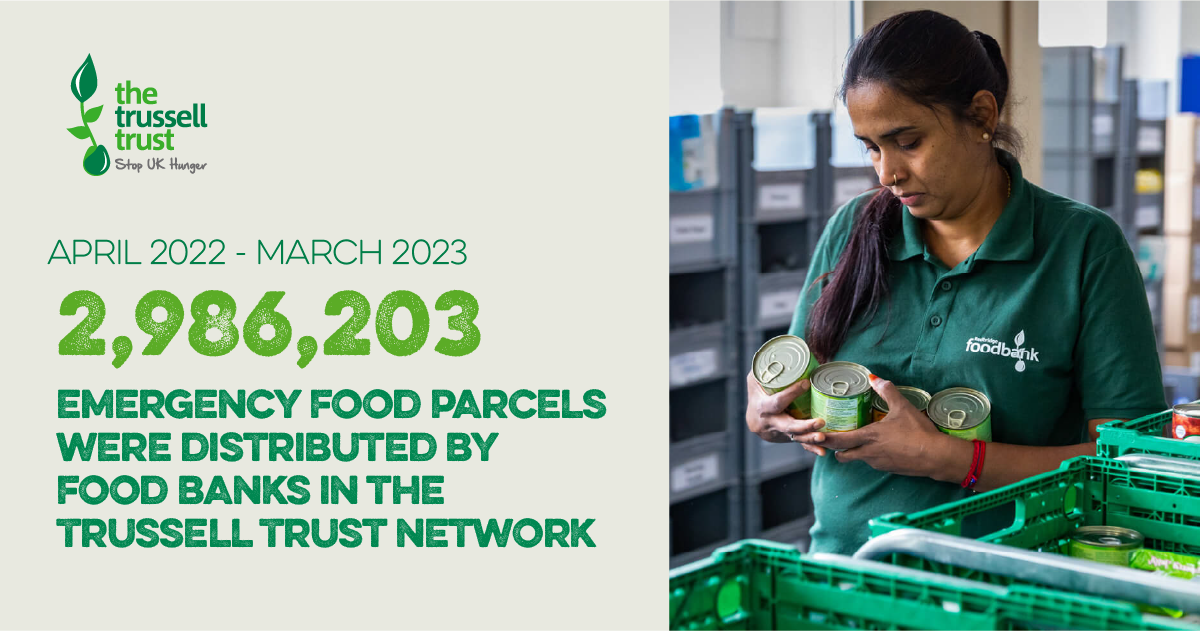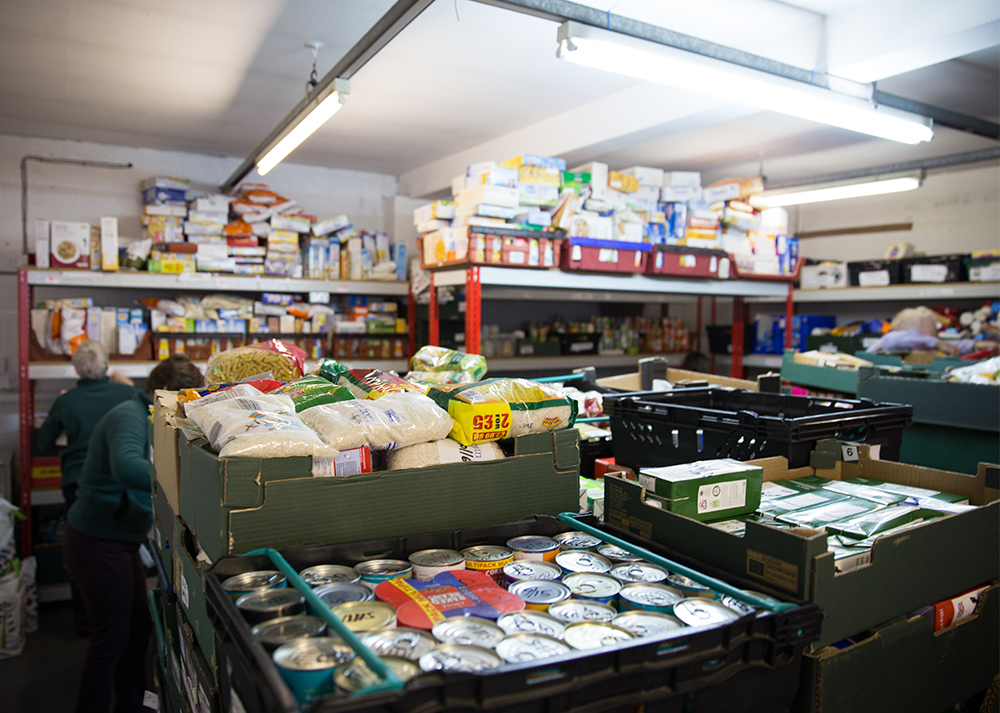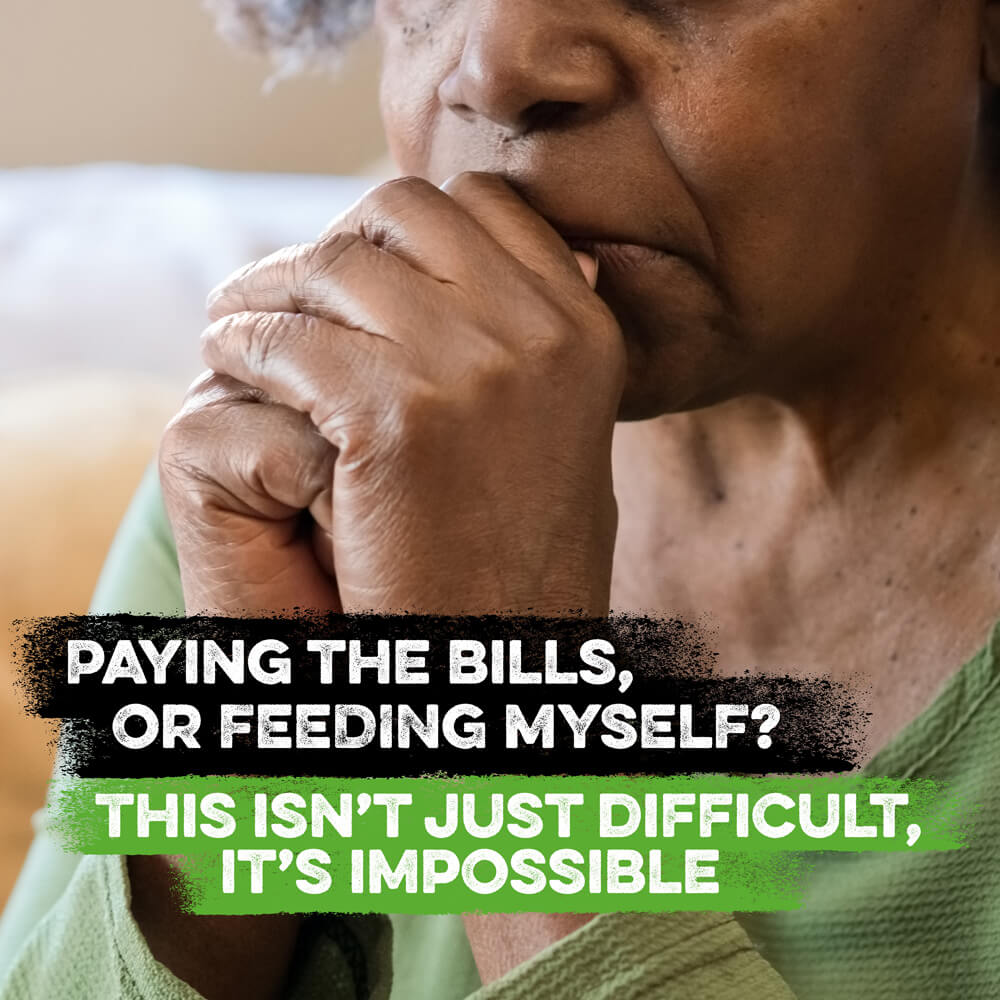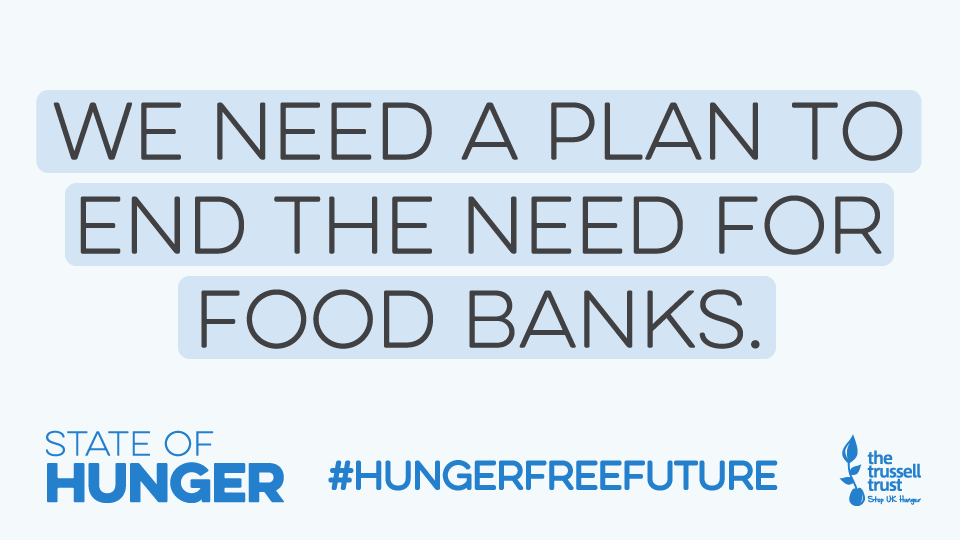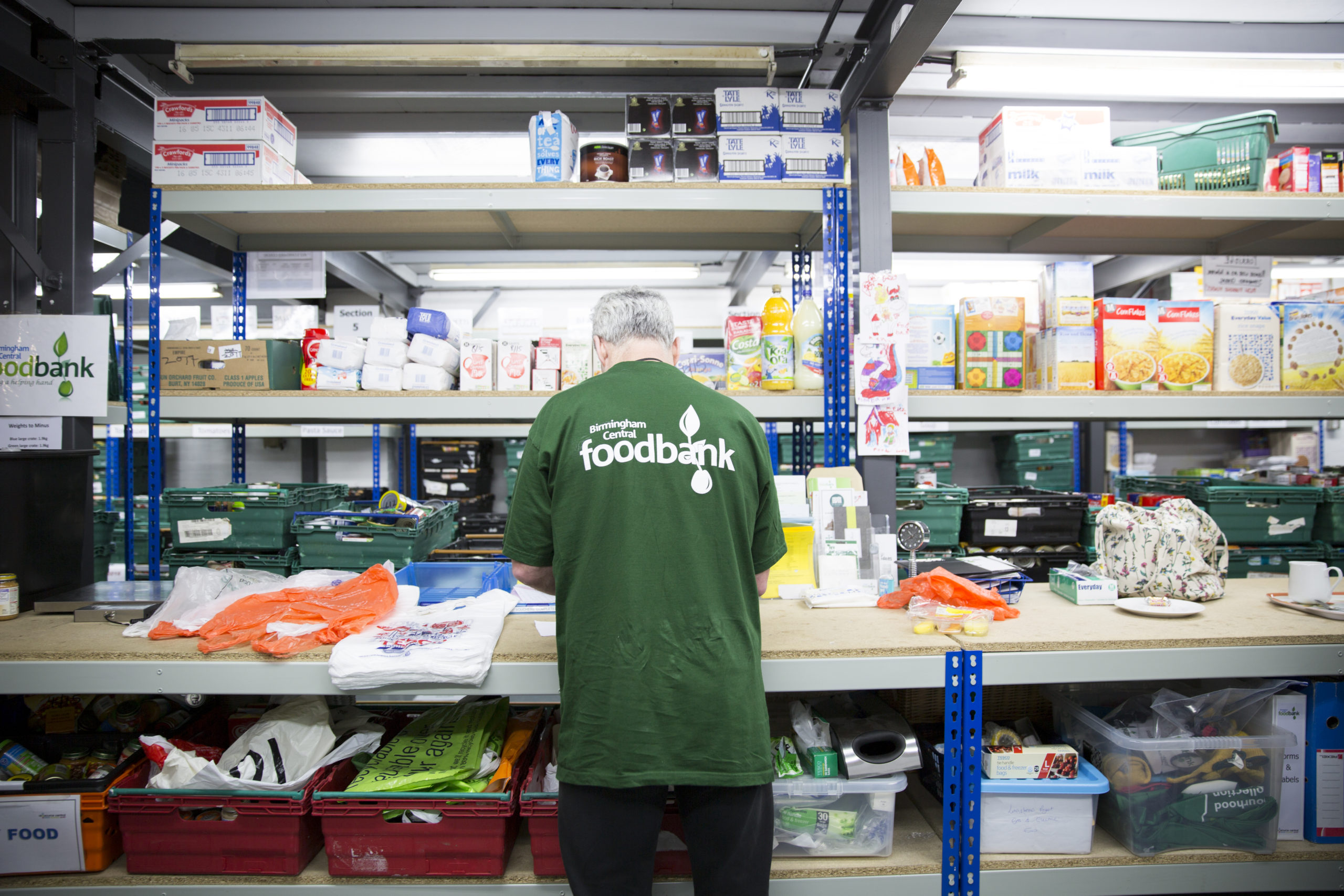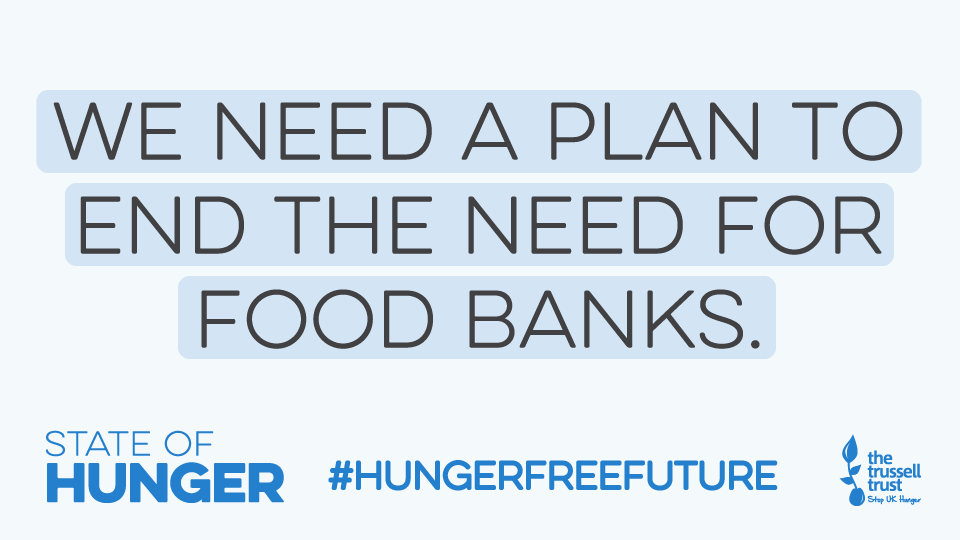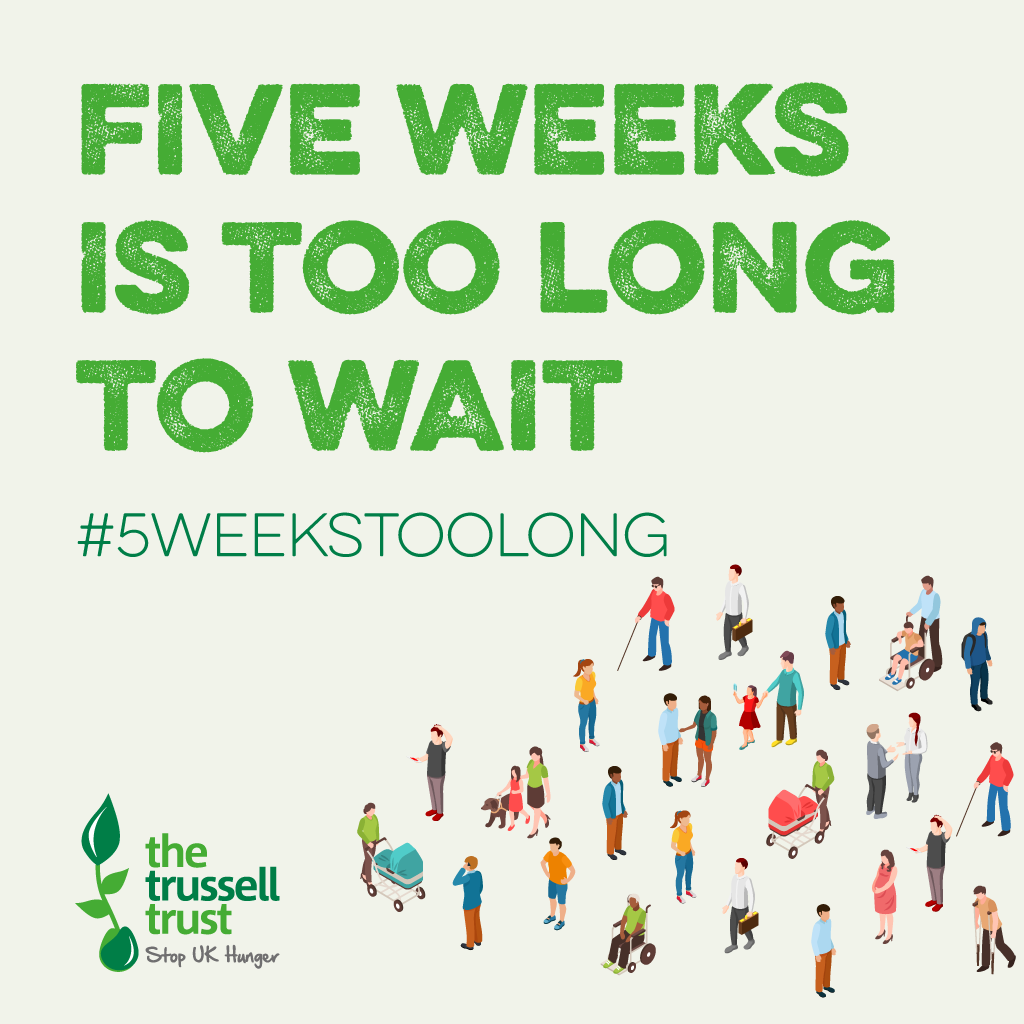- The charity says it’s witnessing an accelerating crisis across the UK as the need for emergency food dramatically increased in the past six months. This follows the £20-a-week cut to Universal Credit and the soaring rise in living costs that people are facing
- More than 830,000 parcels were provided for children
- This is set to get worse as the cost of living crisis continues, the charity warns, as it calls for the UK government to act now and help prevent hundreds of thousands more families being forced to the doors of food banks
New figures released today reveal food banks in the Trussell Trust’s network provided more than 2.1 million parcels to people facing financial hardship across the country, from 1 April 2021 to 31 March 2022.
This represents a 14% increase compared to the same period in 2019/20 – before the pandemic – as more and more people are unable to afford the absolute essentials that we all need to eat, stay warm, dry and clean.
This is the first time food banks in the Trussell Trust’s network have provided more than 2 million parcels, outside of 2020/21, at the height of the pandemic.
Alarmingly, more than 830,000 parcels were provided for children, representing a 15% increase from 2019/20 when 720,000 were provided.
The Trussell Trust says food banks in its network experienced their busiest winter outside of 2020 at the height of the pandemic, providing 1.2 million parcels in the second half of the year alone (from October to the end of March).
That is more parcels than were provided for the whole year of 2016/17, just five years ago.
Food bank managers are also now warning of an accelerating crisis across the UK following the cut to Universal Credit, as the cost of living continues to soar. Need for food banks in the Trussell Trust network has accelerated throughout the past six months:
- July – September 2021 saw a 10% increase in comparison to the same period in 2019
- October – December 2021 saw a 17% increase in comparison to the same period in 2019
- January – February 2022 saw a 22% increase in comparison to the same period in 2020
As inflation continues to increase and rising bills are putting pressure on families across the country, the Trussell Trust says its network expects need for emergency food to rise further still, over the coming months and beyond. 2
One food bank manager said:
“The people who come in are telling me they’re scared. People are beside themselves about what the next six months will bring.”
Even though one in three people on Universal Credit are already skipping meals, the charity says the UK government is still choosing not to protect people already struggling to make ends meet.
The UK government has failed to create any security for people on the lowest incomes, allowing the value of social security to fall dramatically in real terms while prices rise, the charity warns.
In October the Chancellor removed £20 a week from low-income families across the country, the largest cut to welfare since the Second World War.
And in his Spring Statement he rejected calls for benefits to be brought in line with the current rate of inflation to better reflect the true cost of living, the charity highlights.
This is on top of a five-year freeze on benefits rates which means these payments are worth 11% less than they were a decade ago.
With the energy price cap rise just starting to bite, the charity says for most people at risk from financial hardship – who cannot work or work longer hours due to disability, caring responsibilities or mental health issues – there is very little protection ahead.
Food bank staff and volunteers will always do all they can to help people in their communities, they do this every day – but they cannot and should not be picking up the pieces of government inaction, particularly with a crisis of this scale.
Tim, 36, from London works in a high street shop and is also in receipt of Universal Credit. As the cost of living continues to soar, he’s worried about how he’s going to make ends meet.
Tim said: “I’m really worried about what the next few months could be like as the cost of living gets higher and higher. I’m trying to make the best out of the situation but have already had to use a food bank.
“I’ve also made the decision not to turn my heating on to save money and to go without certain types of food. For things to change, the government needs to increase the amount of social security payments so that everyone can afford to put food on the table.”
The Trussell Trust says there is still time for politicians to turn this situation around.
It says governments at all levels must use their powers and take urgent action now to strengthen our social security system so it keeps up with the true cost of living and helps prevent hundreds of thousands more families being forced through the doors of food banks.
For the UK government, that means as a first step increasing benefits payments by at least 7%, so more people are able to afford the essentials we all need in life to get by.
The charity says in the longer term, the government must introduce a commitment in the benefits system to ensure that everyone has enough money in their pockets to be prevented from falling into destitution – which means not being able to afford the essentials we all need to eat, stay warm and clean.
Emma Revie, chief executive of the Trussell Trust, said: “People are telling us they’re skipping meals so they can feed their children. That they are turning off essential appliances so they can afford internet access for their kids to do their homework.
“How can this be right in a society like ours? And yet food banks in our network tell us this is only set to get worse as their communities are pushed deeper into financial hardship. No one’s income should fall so dangerously low that they cannot afford to stay fed, warm and dry.
“There is still time for the UK government to do the right thing. We are calling on the UK government to bring benefits in line with the true cost of living.
“As an urgent first step benefits should be increased by at least 7%, keeping pace with increases in the cost of living. In the longer term, we need the government to introduce a commitment in the benefits system to ensure that everyone has enough money in their pockets to be prevented from falling into destitution.”
“By failing to make benefits payments realistic for the times we face, the government now risks turning the cost of living crisis into a national emergency.”
ENDS
Notes to editors:
Number of emergency food parcels distributed by food banks in the Trussell Trust network in 2019/20 and 2021/22
|
1 April 2019 – 31 March 2020 |
1 April 2021 – 31 March 2022 |
Percentage change |
|
To adults |
To children |
Total |
To adults |
To children |
Total |
To adults |
To children |
Total |
| United Kingdom |
1,185,089 |
724,067 |
1,909,156 |
1,341,049 |
832,109 |
2,173,158 |
13% |
15% |
14% |
- In 2021/22 these parcels were distributed by 1,630 distribution centres operating in 293 local authorities across the UK.
- Between October 2021 and the end of March 2022 food banks in the Trussell Trust network distributed 1,208,674 emergency food parcels – more than for the entirety of 2016/17 (1,201,286)
- One in three people (33%) receiving Universal Credit had more than one day in the last month where they didn’t eat at all or had only one meal. This research is based on an online survey by YouGov of 1,506 UK adults (18+) currently claiming Universal Credit. People were surveyed between 24 January – 15 February 2022.
- ‘Emergency food parcel’: this typically is a three-day parcel containing emergency food for one person. Since early 2020 crisis food banks have also been distributing seven-day parcels. For this release the Trussell Trust have simply combined both three-day and seven-day parcels together to report the total number of emergency food parcels that were distributed.
- Need for emergency food is driven by a lack of income. The Trussell Trust’s State of Hunger research shows that 94% of people referred to food banks are destitute, meaning they don’t have enough income to buy the essentials that we all need. State of Hunger
- Figures from the Trussell Trust network cannot be used to fully explain the scale of food bank use and wider food insecurity across the UK. The Independent Food Aid Network (IFAN) has identified at least 1,172 independent food banks while there are also Salvation Army food banks as well as food banks run from schools and some universities and hospitals. There are also thousands of other food aid providers including soup kitchens and social supermarkets.
About the Trussell Trust:
- We’re here to end the need for food banks in UK.
- We support a UK-wide network of more than 1,400 food bank centres and together we provide emergency food and support to people locked in poverty, and campaign for change to end the need for food banks in the UK.
- Our most recent figures for the number of emergency food supplies provided by our network: https://www.trusselltrust.org/news-and-blog/latest-stats/
Read more
